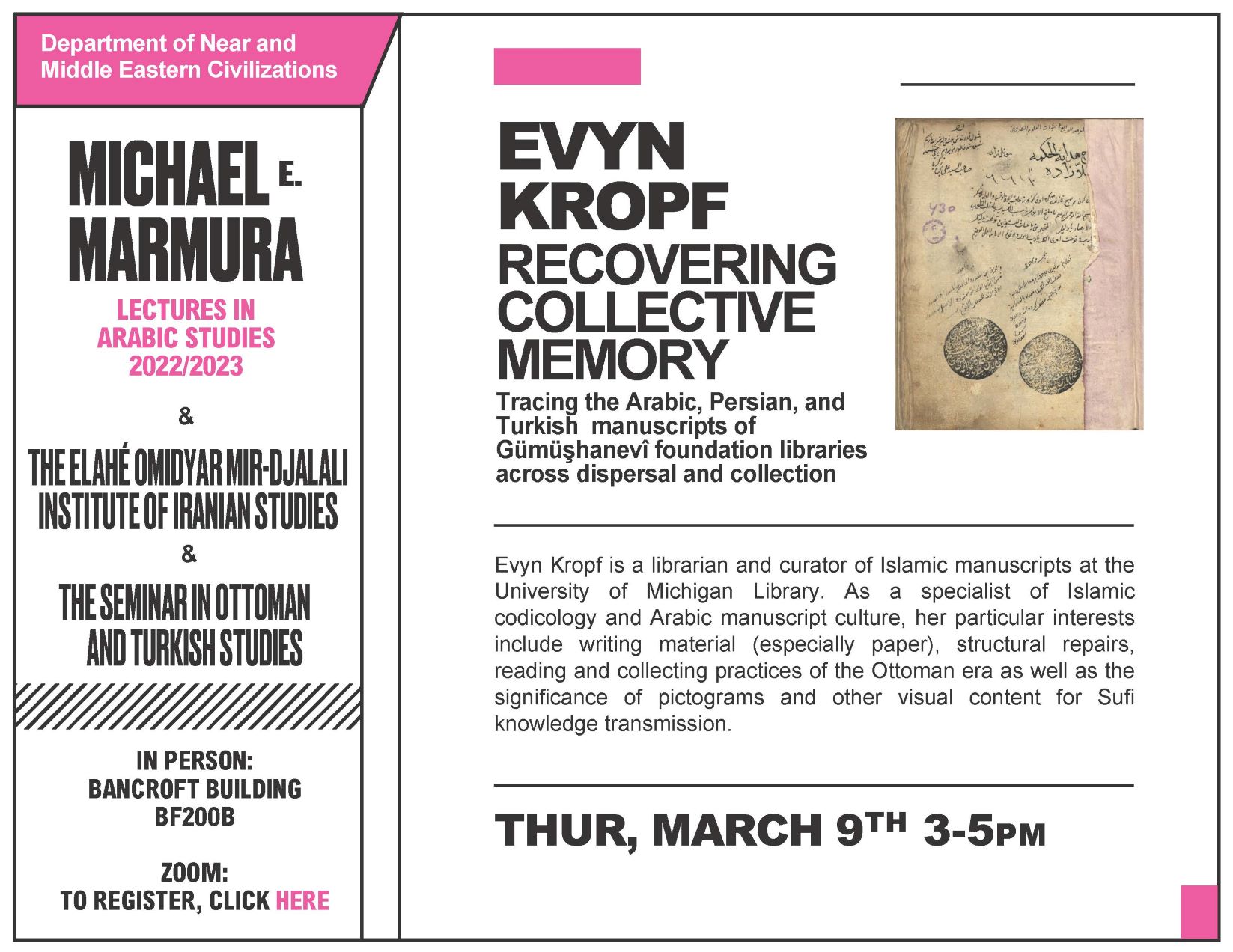Recovering collective memory: Tracing the Arabic, Persian, and Turkish manuscripts of Gümüşhanevî foundation libraries across dispersal and collection
When and Where
Speakers
Description
Cross-over Lecture Jointly presented by the Michael E. Marmura lecture series in Arabic Literature, the Elahé Omidyar Mir-Djalali Institute of Iranian Studies, and the Seminar in Ottoman and Turkish Studies
Beginning in the 1860s, the well-known scholar and Sufi shaykh of the Naqshbandī-Khālidī suborder Ahmed Ziyaüddin Gümüşhanevî (d.1893) established several foundation libraries (vakıf kütüphaneleri) of Arabic, Persian, and Turkish manuscripts for the use of students and scholars in the vicinity of Trabzon and Erzurum.
Successive armed conflicts between the Russian Empire and Ottoman Empire put the libraries at risk, and in the midst of the incursions on the Caucasian Front of WWI, many manuscripts were looted and removed to the Museum of the Caucasus in Tbilisi. Though there is evidence of the trustee (mütevelli) Ferşat Efendi (d.1929) reporting the removal to the Ottoman commander Kâzım Karabekir Paşa with an appeal for their restitution, the manuscripts were not returned but instead further removed to the Academy of Sciences in St. Petersburg and to the British Museum in London. The manuscripts have since been further dispersed in institutional collections in the UK, Germany, and the US.
This talk will reach through contemporary institutional collection provenance, annotations and material features of discrete copies, and independent historical accounts of individuals, communities, and institutions to trace the migrations of these portable and vulnerable objects and surface their embedded memory of earlier associations, meanings, and collection contexts.
Evyn Kropf is a librarian and curator of Islamic manuscripts at the University of Michigan Library. As a specialist of Islamic codicology and Arabic manuscript culture, her particular interests include writing material (especially paper), structural repairs, reading and collecting practices of the Ottoman era as well as the significance of pictograms and other visual content for Sufi knowledge transmission.
Zoom Registration link: https://utoronto.zoom.us/meeting/register/tZAod-uhrzIrHdcFnXTacDa5jQpXeR...



